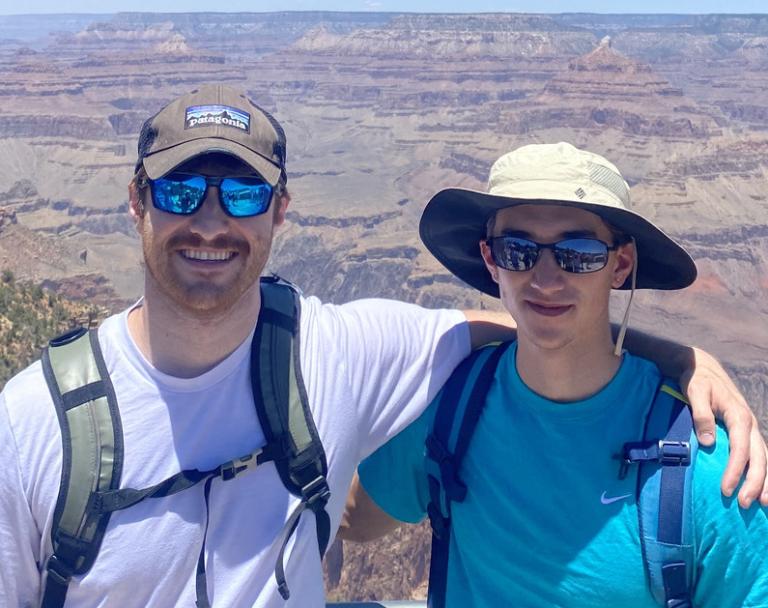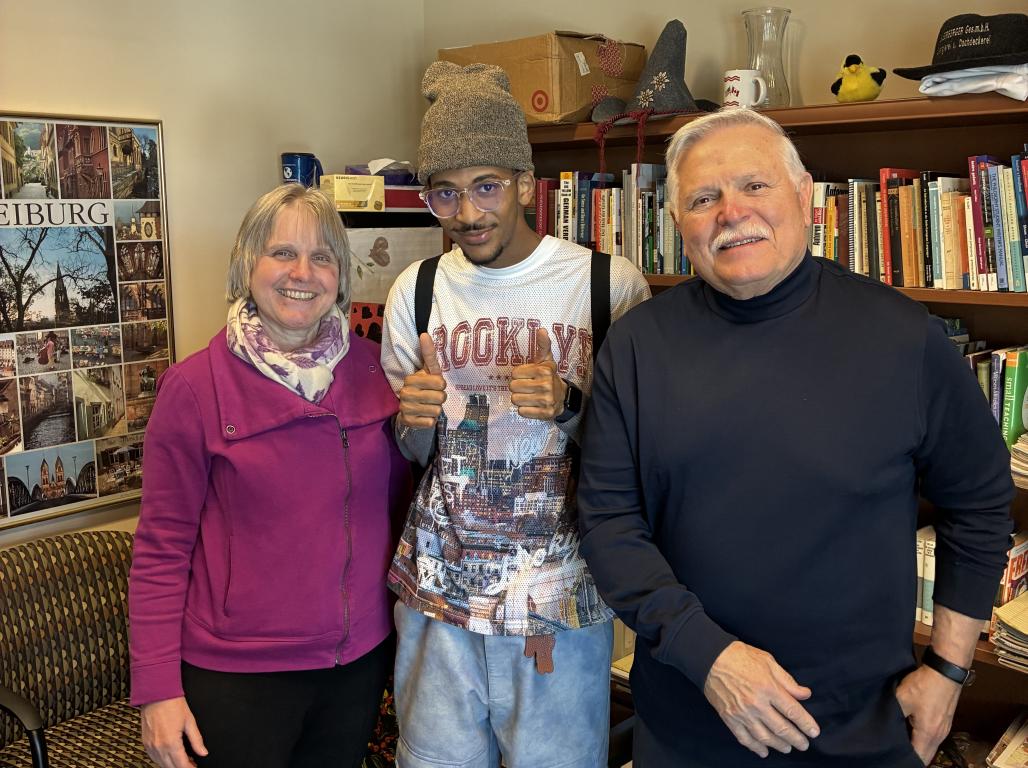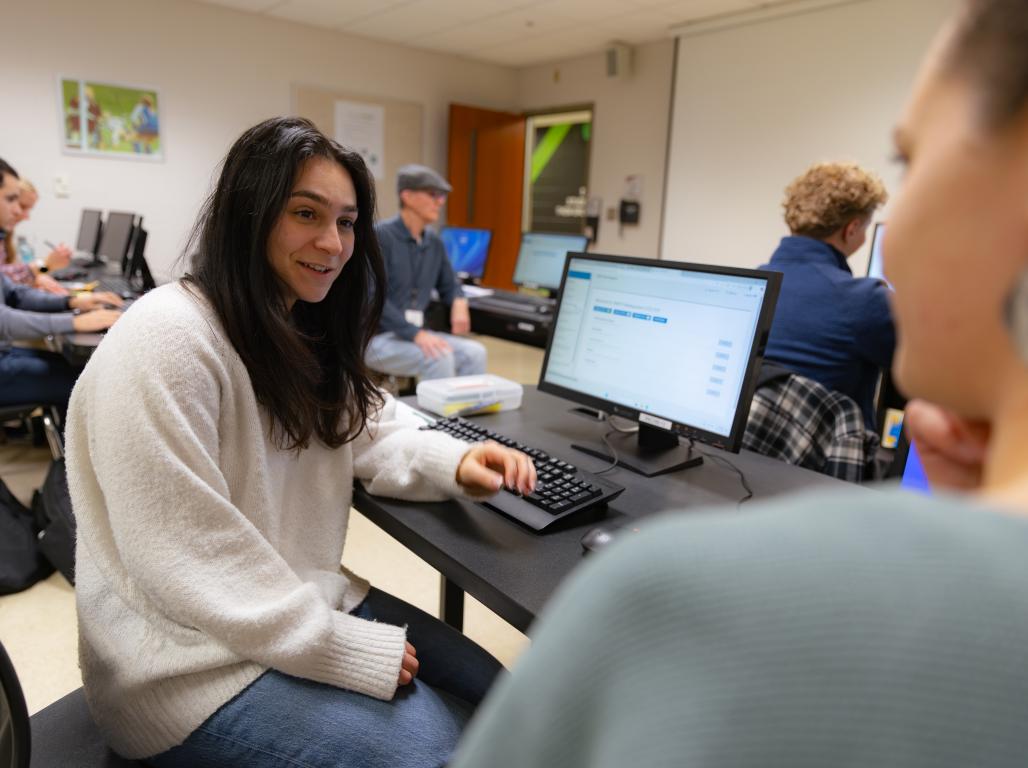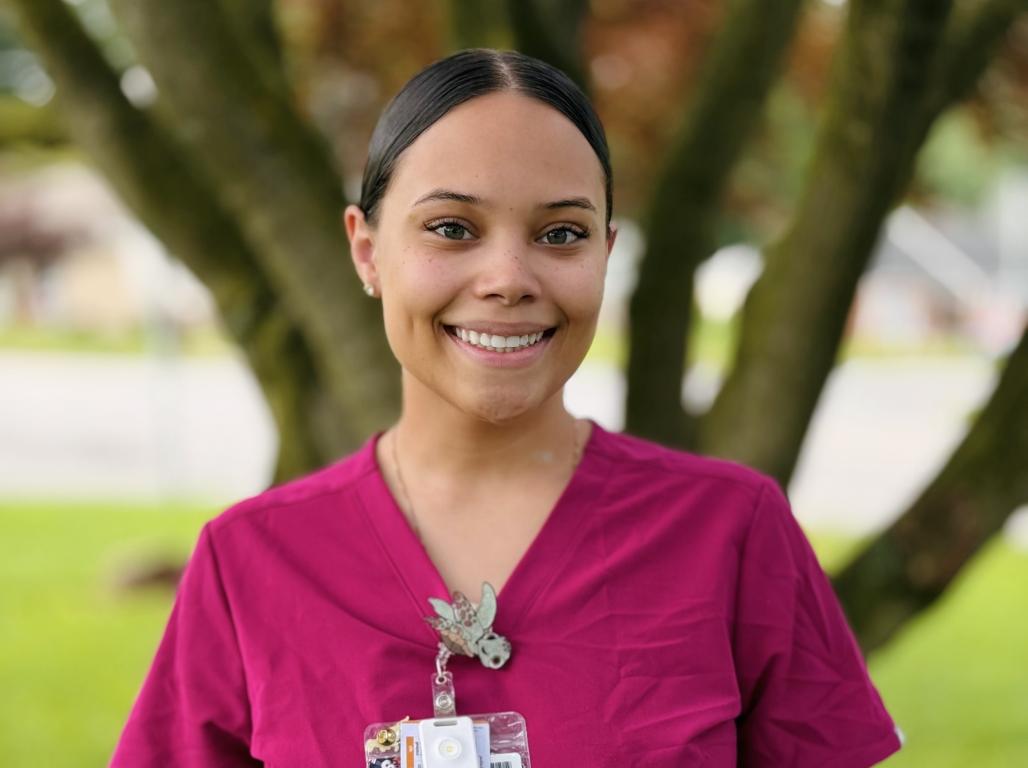Two York College students, Evan Gibbs ‘26 and Alex Glatfelter ‘27, spent two months doing deep dives into the world of mathematics and social sciences through Arizona State University’s REU Program.
Research Experience for Undergraduates, or REU Programs, are research opportunities funded by the U.S. National Science Foundation (NSF) that allow undergraduates to spend the summer researching a particular field or topic of their interest, such as physics, computer science, and math. Students are invited to another university for six to eight weeks to complete a research project with the support of other undergraduate participants and the host university’s graduate students and faculty.
This past summer, two York College of Pennsylvania Math majors were accepted into the Quantitative Research in the Life and Social Sciences Program (QRLSSP) REU at Arizona State University.
There, they were not only exposed to the type of work they wished to pursue with their intended degrees, but they also walked away with an unforgettable experience and a research accomplishment that they will continue to work on and present later in the year.
Evan Gibbs: From Fruit Flies to Mosquitoes
As a Mathematics major with minors in Data Science and Biology, Evan Gibbs ‘26 has always been fascinated with combining his interests in science and mathematics. Even in high school, Evan was delving into subfields and topics such as theoretical biology. By the time he entered college, Evan had begun exploring REU and other summer programs that would combine his two main interests.
“I’ve always really wanted to do research, especially at the interface of math and biology,” Evan said. “I think that together, that interdisciplinary field is really interesting.”
Evan eventually discovered a program through Northwestern University and the University of Chicago: The National Institute for Theory and Mathematics in Biology (NITMB) Summer Undergraduate Research Program (SURP). He spent his 2024 summer in Illinois, doing research on characterizing the geometric space of fruit fly wings.
Evan and his group are still continuing their work and working towards publishing their research as “Novel quantification of morphological variation in D. melanogaster wings using the Wasserstein-Fisher-Rao metric."
“Essentially, our project is looking to find a way to better quantify morphological variation where we happen to use wings as our model, and we’re doing this by way of what is called Wasserstein geometry,” Evan said.
The experience resonated with Evan, and he began exploring more opportunities to do more mathematical biology research. A year later, he learned of the QRLSSP REU held May 27th-July 19th, 2025, at Arizona State University.
“This program is pretty interesting because you actually learn about dynamical systems, which are really important in math-bio, and I’ve never done research in them,” Evan said.
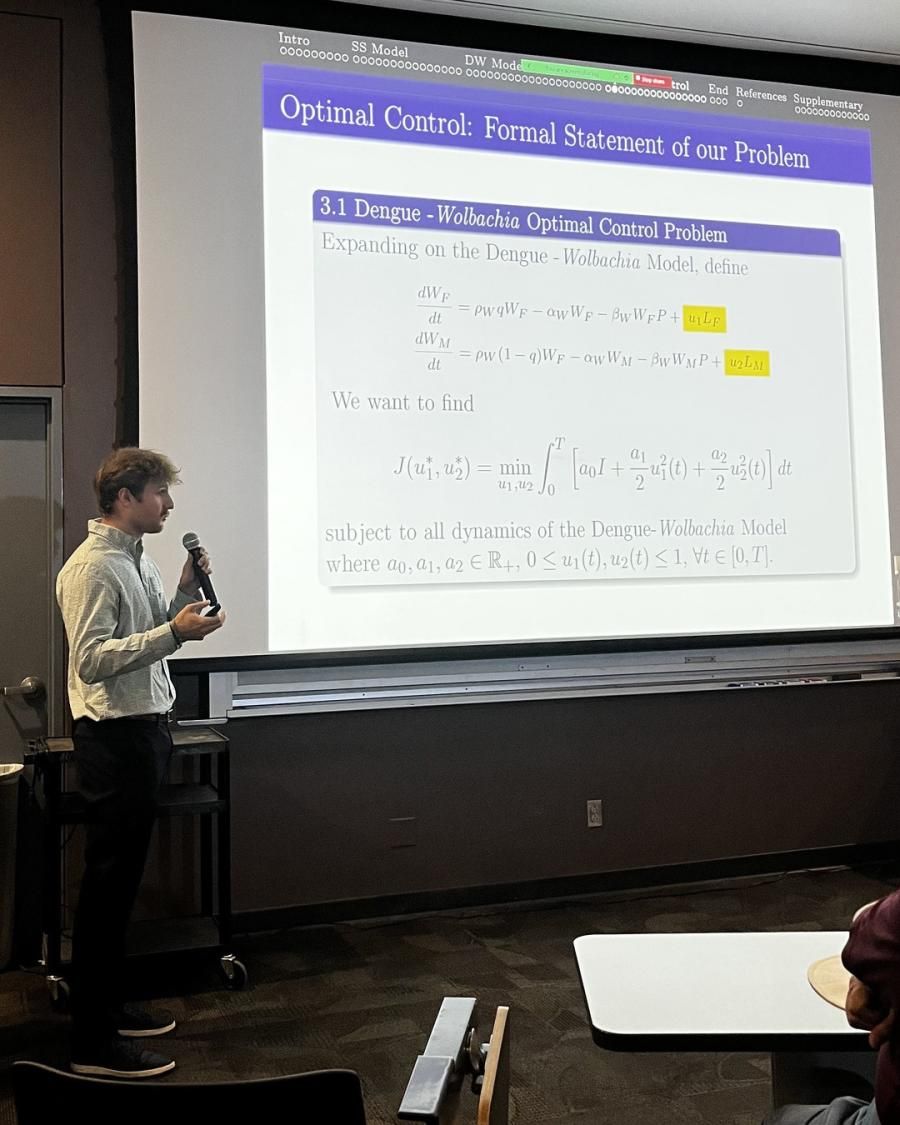
The program's first three weeks were spent teaching the students the math technical information they would need for their research projects. Their days consisted of morning lectures, computer lab sessions, and homework assignments that the students worked on together. They even heard from guest lecturers and professionals during their lunch hours.
The rest of the program was spent doing the actual research. The 12 participants were split into four groups, each with graduate student mentors and a professor to guide them. The group would then choose a topic to research for the next month and a half until it was time to share their findings.
Evan’s group decided to create a Dengue Wolbachia Model for mosquitoes. Dengue is a disease commonly found in South America, and it is often transmitted by mosquitoes. Wolbachia is an endosymbiotic bacterium—that is, a bacterium that resides in mosquito cells, most commonly in reproductive cells—that can prevent the transmission of Dengue. The bacteria also have the potential to alter mosquitoes' reproduction process to prevent them from passing it along to their offspring.
“It’s a biological control that can help with preventing Dengue,” Evan said. “And so, [for] our research, we built a mathematical model that describes Dengue and Wolbachia dynamics when the sex-structuredness of the mosquito population is accounted for.”
In practice, the group’s goal was to create a methodology for identifying optimal release programs of Wolbachia-infected mosquitoes that account for the sex of the mosquitoes released. They wanted to find an optimal way to release male/female Wolbachia-infected mosquitoes so that:
- Mosquitoes carrying Dengue vanished.
- The number of infected people in the release program is minimized.
- The number of mosquitoes released is minimized throughout the program.
“In essence, this project was a way to understand how Wolbachia can be used to deplete Dengue in mosquito populations and thereby prevent disease in humans,” Evan said.
Alex Glatfelter: Understanding Voter and Party Affiliation
Alex Glatfelter ‘27, a Mathematics major with an Economics minor, also attended the QRLSSP REU this past summer. After hearing about Evan’s own positive experience doing summer research the previous year, Alex became interested in participating in one and was also accepted into the Arizona State University program.
“I wanted to do research for a little bit, and I’m also interested in going to grad school,” Alex said. “So, I felt like this would be a good opportunity to help prepare me for grad school and figure out what a research environment’s like.”
“I’m interested in economics,” Alex continued. “I like social science in particular [...] because it helps me apply the math to the real world. There’s a lot of meaningful areas of research in the social sciences.”
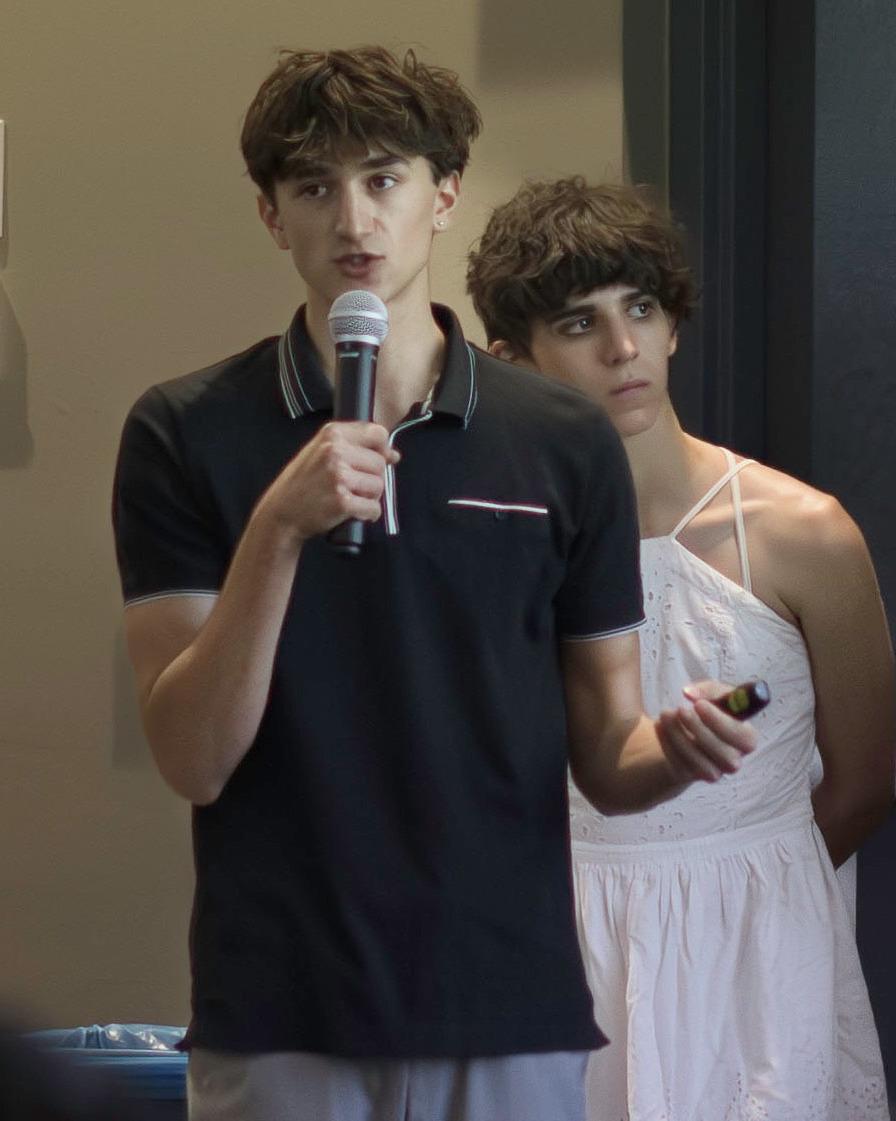
Alex's group focused on researching how individuals and political parties adjust their beliefs and ideologies, and examined how that evolution impacts voter satisfaction and party polarization. They created a model that attempted to account for all of the factors that could impact someone’s political beliefs, such as the individual’s personality/temperament and how influential a political party or their peers could be on them.
“We wanted to account for all these different things in how individuals update their ideology, and we wanted to find research and find literature that backs what we were putting in the model,” Alex said. “Everything we added into the model, we tried to justify mathematically.”
They also considered other elements such as a person’s biases, the influence of social media, and even how parties competed against one another. Once they had done so, the group collaborated to create a formula to measure voter satisfaction.
Even now, after the conclusion of the REU Program, Alex is still adjusting the model and formulas he helped create over the summer.
“We're still working to understand the dynamics of the system,” Alex said. “ [...] I think we've created a good model that is somewhat realistic in how individuals and parties evolve over time, but we definitely have to look at that and adjust some things in the future to gather some more meaningful conclusions.”
The group will continue to improve upon their research beyond the space that the REU provided them. They are still looking for ways to address the limitations of their model. Their goal is to more accurately identify how individuals and parties evolve ideologically, better understand how voters choose which party to identify with, and examine how these dynamics impact voter satisfaction and party polarization.
Going Beyond the Program
During their stay in Arizona, the students did more than just work. They could participate in fun activities such as fishing, hiking, and exploring the town they were staying in. Some were even able to visit well-known landmarks such as the Grand Canyon and Joshua Tree National Park.
“These programs - They understand that you’re in a new place, you’re doing work, but they also want you to play hard and go out and do things and not be cooped up all the time,” Evan said.
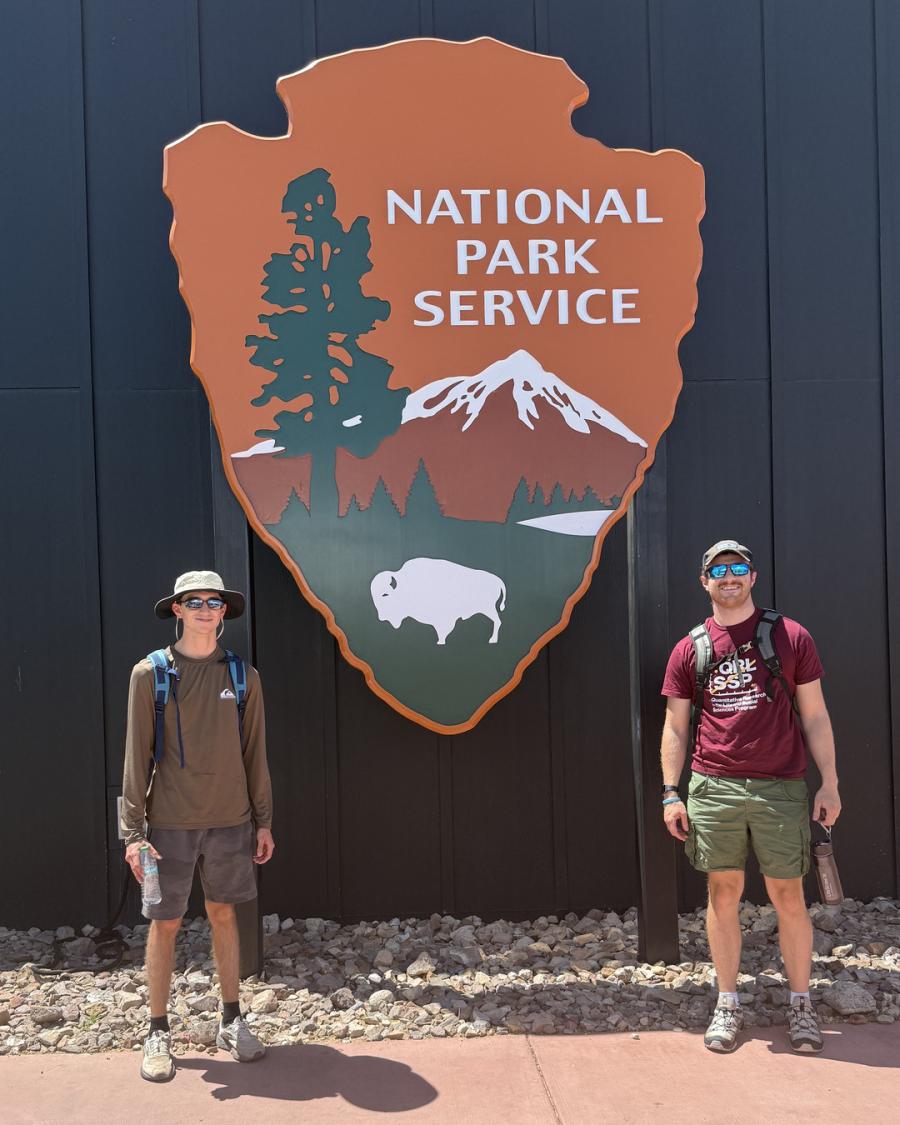
Evan and Alex have kept in contact with their groups to refine their research. Evan’s group is looking to publish their research as a manuscript relatively soon. Both students also plan to meet again with their respective groups in October to present at an upcoming research conference in Columbus, OH, and later in January in Washington, D.C., for the Joint Mathematics Meetings (JMM).
Both York College students are making plans for graduate school, as well. Although pursuing math as their focus can be daunting, Evan and Alex have expressed how much doing the REU programs has helped prepare them for what is to come and explore their research interests.
Most of all, the program showed them how important it is to seize whatever opportunities are presented to them to expand their skills and get the experience students need to take the next step in their academic careers. That, and making sure you have a passion for the work you will be committing to, are important to remember.
“Really love what you do,” Alex said. “I don’t think you could do this if you don’t love it. Just have a genuine passion for it.”
“Applying for programs like this is super important,” Evan said. “Granted, you have to work really hard to get in one, and you should really work hard when you are in one. But if you’re interested in that, don’t feel limited by the opportunities that you see in front of you because there’s so many out there.”


